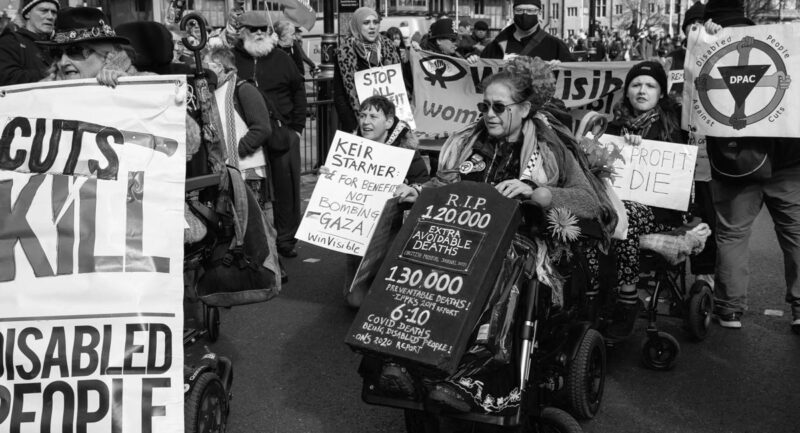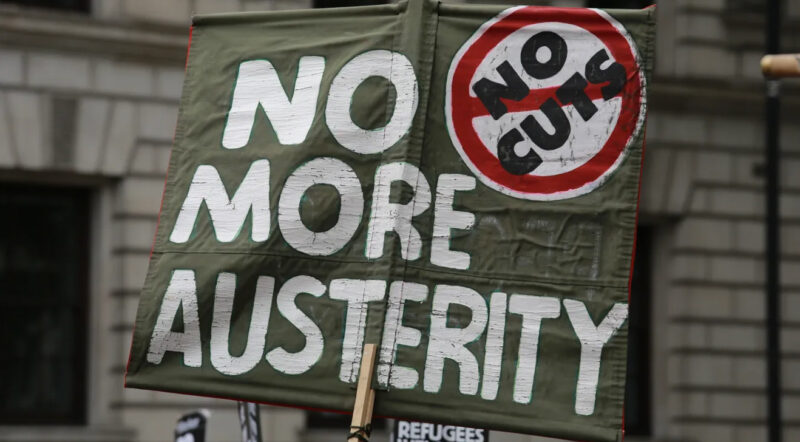Eurozone crisis will get worse in 2012
 Despite the best efforts of the French and German leaders, the Eurozone crisis is not going away, writes Andy Yorke
Despite the best efforts of the French and German leaders, the Eurozone crisis is not going away, writes Andy Yorke
THE EUROZONE crisis has returned with a vengeance in the new year, despite desperate actions by central bankers and governments in December to push it back. The result is a creeping recession across Europe, almost certainly sparking a double-dip global recession. The collapse of the Eurozone would mean even deeper crisis, a world recession of far greater severity than that of 2008-9 and tremendous political instability across Europe.
In Greece and Italy, the countries at the heart of the crisis, the unelected, technocratic governments led by Lucas Papademos and Mario Monti came to power in November to implement austerity. As ex-vice president of the European Central Bank (ECB) and ex-European Union (EU) commissioner, both were approved as a safe pair of hands by the ‘Troika’ – the ECB, EU and IMF – to oversee the bailout process of the worst-hit countries; they have faithfully pushed sweeping cuts programmes over the heads of the people.
Then on 1 December the ECB lent billions of euros to the European banks and, with help from five other central banks including the US Federal Reserve, managed to stave off a looming credit crunch. An emergency EU summit on 8 December agreed to a new fiscal union to slash public spending with legal debt limitations. Hedge funds and billionaire speculators that control the international market in public and corporate debt, along with central bankers and politicians, breathed a sigh of relief.
Yet the lull never came. Each time more radical, desperate measures are used to halt the advance of the crisis, it returns with renewed strength. It is no exaggeration to say that 2012 – indeed the next few months – will determine the future of the Eurozone.
The German Chancellor Angela Merkel talked tough on the need for “binding” legal limits with “automaticity” in their enforcement by EU bureaucrats. “The lessons are very simple: rules must be adhered to, adherence must be monitored and non-adherence must have consequences,” she said. While this is a shared strategywith France’s president, Nicolas Sarkozy, it is Merkel alone who has a veto on the whole Eurozone bailout operation due to the relative size and industrial strength of the German economy in Europe. Yet despite promises to speedily finalise a fiscal union at a 30 January summit, the markets remain underwhelmed.
The plan was almost immediately compromised in the eyes of the bond markets as the ECB bureaucrats, backed by Merkel, refused to issue euro bonds. These would lower interest rates by pooling the debts of the poor countries with those of the rich EU economies including Germany. Without ECB bonds, speculators were sceptical about whether the new compact would have much affect on the immediate crisis, and returned to demanding higher interest rates to buy government bonds.
In the context of the deep recession gripping Greece and Portugal, this has meant the vicious circle of the last two years of crisis accelerating: rising interest rates fuelling ever-rising debt, requiring more borrowing, and investors demanding even higher interest rates due to fear of default. The bailout packages taped together last year are coming undone already, further contributing to investor uncertainty.
Then the US-based ratings agency, Standard & Poor’s, dropped a bombshell on 13 January, downgrading nine Eurozone countries in one go, taking France down a notch from its triple-A rating and relegating Portuguese debt to junk status. The following week it downgraded the rating of the European Financial Stability Facility (EFSF), the EU bailout fund, from its triple-A rating. The negative trends began to pick up pace.
The vice tightens on Greece
With renewed strikes and street protests outside of the Athens parliament against this savage austerity, coupled with the possibility that another round of deep cuts might not be voted through, has raised once again the question of default and a ‘disorderly’ exit of Greece from the Eurozone.
As a result, scores of suited bureaucrats representing private investors and the Troika have descended on Athens to try to re-float the bailout and impose further austerity. In reality, the money will go directly from Greece into the vaults of the European banks and global finance houses that own its debt – they are the real ones that are being bailed out.
The Troika is there to negotiate a second €130 billion bailout, going through the government accounts to find more cuts to pay for it. A bailout is the one thing that stands between Greece crashing out of the Eurozone and wrecking it, along with the fortunes of the big French banks and German export firms that profit so handsomely at the other countries’ expense. They want Papademos to cut faster, arm-twisting him into adopting a law to commit state revenues to debt payments first before any other spending, and cede tax and spending decisions to a EU budget commissioner. The financial dictatorship of capital, the international banks and financiers has gone from a hidden economic reality, mystified under the term ‘the markets’, to an open political fact.
At the same time, ECB bureaucrats and a group of more than 450 banks, insurance companies, hedge funds and other investors are haggling over who will shoulder the greater bulk of Greek debt write-downs, possibly up to 70 or 80 per cent of the original debt. They have no choice: Greece in recession doesn’t have a hope of ever paying off its massive debt.
Portugal and Italy drawn deeper into the vortex
So far in the euro debt crisis, 7 per cent interest rates have been considered the threshold of crisis, triggering an unsustainable spiral of growing debt. Since the downgrading of its debt, Portugal’s three-year debt costs have rising to an eye-watering 19.2 per cent and 10-year debt to 14.2 per cent as the markets bet against it, raising the spectre of a second bailout from an already strained EU fund.
Italy is too big to fail but also too big to bailout – its debts are 2.7 times the size of Portugal, Greece and Ireland combined and could cost as much as €1.4 trillion, against a current stability fund with only €250 billion. But the Monti government has not blocked interest rates on its debt rising steadily towards 7 per cent again, and now Monti, terrified of unpopularity and revolt, has called for the ECB to act and less stringent bailout conditions: “Fiscal discipline [austerity] is a necessary condition for growth. It is not however a sufficient condition.”
As unemployment in Spain hits 5 million, the right-wing Rajoy government has joined in, demanding the EU relaxes its deficit targets. They are part of a growing chorus, which includes the IMF, arguing in favour of austerity but against EU dictats forcing countries to put in place pro-cyclical, recession-reinforcing policies. The problem is that the Merkel government is unwilling to pay the bill for this.
The Eurozone crisis does not just threaten Europe with recession – it threatens a world recession. According to the Bank of England (BoE), the four biggest UK banks have a net exposure to Ireland, Spain, Italy, Greece and Portugal of £172.3 billion, 83 per cent of their total core capital. Meanwhile the French and German banks hold the bulk of these countries’ debts; the US banks are also heavily exposed.
The leaders of the big powers of the EU – Sarkozy, Merkel and David Cameron – all point the finger at each other and demand someone else acts to stave off disaster, effectively passing the buck. The historic, intractable crisis has become a zero-sum game as the capitalists seek to make each other pay the costs of the crisis while minimising domestic damage. The only thing they can agree on is the poorer, debt-strapped countries of Europe, their working class and poor, should pay up with savage austerity.
A growing number of EU countries, opposed by Merkel and Sarkozy, are insisting that the ECB follow the US and Britain and print money through “quantative easing” – the purchase of the indebted countries’ bonds from the banks and finance houses weighed down with them (i.e. a bailout) and release eurobonds, which would lash the fate of the big powers, particularly Germany, to the mass of indebted states.
Since the ECB is not a government that can then implement austerity to pay off the socialised debts of the banks, such a move would almost certainly mean inflation and the need for sharp deflationary policies, imposing deep recession on the EU and dragging Germany down with it. Hence the German capitalists and the Merkel government have adamantly refused, demanding first the indebted countries adopt more austerity instead and pay for the crisis. So piecemeal, inadequate measures trickle out and the crisis deepens.
Historic crisis requires historic struggle
The poor indebted EU countries – Greece, Portugal and Ireland – face a decade or more of punishing austerity back to Third World living standards. This clearly exposes the two-tier nature of the EU, with an imperialist core that exploits its poorer neighbours. A report last year by accountancy firm Ernst & Young predict it will take Ireland two decades to achieve pre-crisis levels of unemployment, and even then only if the intervening years see massive emigration.
The inexorable deepening of the Eurozone crisis is a manifestation of the historic crisis of the whole capitalist system that opened with the credit crunch of 2007. The rise of state debt from recession, and the socialisation of the banking sector’s debts by means of bailouts, is not simply cyclical but also historic. It is rooted in the falling rate of profit at the heart of capitalism, its productive industrial sectors, and can’t be reversed by Keynesian measures such as borrowing more to re-float economies with public spending and avoid recession. As the vicious circle of debt and interest rates shows across the Eurozone, these measures will simply send debts skyrocketing in an uncontrollable spiral, followed by hyperinflation.
Instead the workers movement must attack the fundamentals of capitalist power: fight to cancel all the cuts along with all the debts, nationalise the banks and downsizing companies that are laying off workers without a penny of compensation, placing them under democratic control of the workers and consumers. If resistance to the cuts becomes all-out general strikes coordinated across Europe, then it can develop into a revolutionary challenge to the bankrupt system and install democratic planning for a Socialist United States of Europe.









